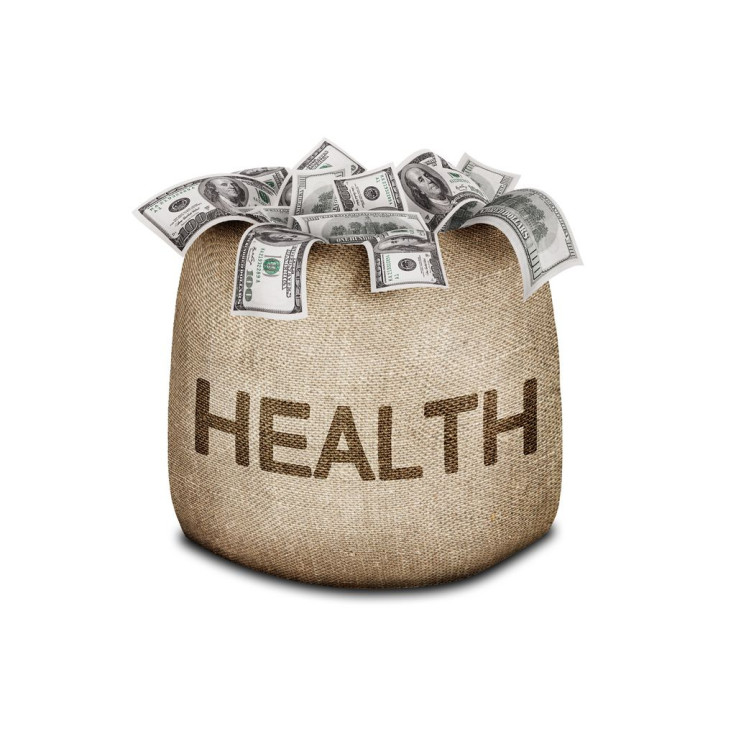Americans Don't Get Universal Health Care, But They Might As Well Be Paying For It

The issue of universal health care has loomed over the U.S. for years. But with rising health care costs, the enactment of the Affordable Care Act (more commonly known as Obamacare ), and an increasingly tense presidential race, the debate is becoming inescapable. Despite the country’s ever-divided political stance, the fact is the U.S. is one of the only developed nations without a universal health care system. And while most of the population believes this is because health care is primarily privately funded, they’re wrong.
A new data analysis published in the American Journal of Public Health puts a spotlight on government spending, and illuminates a shocking imbalance between private and government health funding: Nearly two-thirds, or 64.3 percent, of health care spending in the U.S. is funded by tax revenue.
These statistics were drawn from 2013 data from the Centers for Medicare and Medicaid Services, the Office of Management Budgets, the Census Bureau, the Internal Revenue Service (IRS), and the Organization for Economic Co-operation and Development. In total, health-related spending amounted to $2.9 trillion ($9,267 per capita) that year, which means taxpayers paid $1.9 trillion toward health care, or $5,960 per capita. With the Affordable Care Act in place, the government’s share of health spending is expected to rise to 67.3 percent by the year 2024.
Not only are these costs astounding, but they’re also uniquely large. In 2013, government health care spending was higher in the U.S. than any other nation, including countries with universal health care programs. Additionally, the government’s share of health spending in the U.S. was even higher than the total cost of health care (government plus private spending) in every country other than Switzerland.
“The finding that Americans pay the world’s highest health-related taxes conflicts with popular perceptions that U.S. health care financing system is predominantly private,” authors Drs. David U. Himmelstein and Steffie Woolhander wrote in the study.
Of the total $2.9 trillion spent on health care, direct government payments, such as Medicare and Medicaid, only accounted for 47.8 percent. The remaining 16.5 percent, the analysis found, was used for government outlays for public employees’ private health insurance coverage (amounting to $188 billion, or 6.4 percent of total spending) as well as tax subsidies to health care ($294.9 billion, or 10.1 percent).
The study also reported tax-funded health expenditures accounted for 11.2 percent of U.S. gross domestic product (GDP), a percentage that is, again, higher than that of any other nation.
"We pay the world's highest health care taxes. But patients are still saddled with unaffordable premiums and deductibles," Woolhandler said. "Meanwhile, billions are squandered on paperwork, and insurers and drug companies pocket huge profits at taxpayer expense."
Himmelstein argued the data show “universal coverage is affordable — without a big tax increase. In fact, he said “we already pay for national health insurance, but we don't get it. It's an outrage that the American people pay sky-high health care taxes, but 33 million are still uninsured."
Source: Himmelstein DU and Woolhander S. The current and projected taxpayer shares of U.S. health costs. American Journal of Public Health . 2016.



























